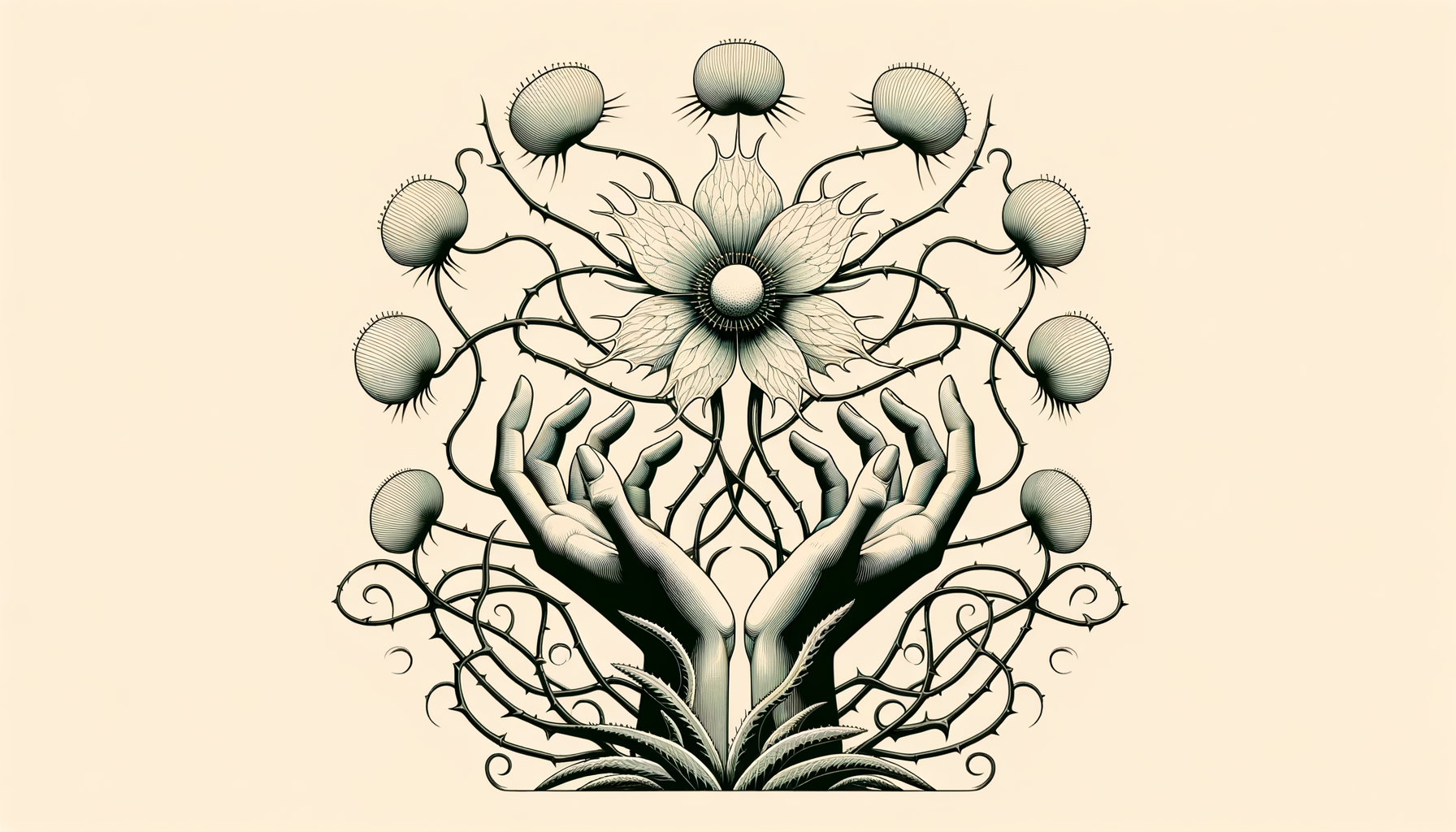What Scares Me the Most (and Why I Do It Anyway)
The Fear Factor: Why Risking Our Hearts Feels Like Skydiving (Without A Parachute)
When I was eight, I was convinced there was a ghost in the hallway outside my bedroom. Every night, I’d sprint to the bathroom, holding my breath as if it’d make me invisible. The ghost? My mother’s neglected floor lamp with its frayed shade. My years of terror were completely unfounded, though very creative.
Fast forward a few decades, and my ghosts are more abstract, yet no less haunting: vulnerability, rejection, loneliness. You know, the classics that show up at 2 AM, poking holes in your confidence like an ill-timed horror movie. Let’s call this anthology “Fears: The Dating Edition.”
As someone who once struggled to tell a high school crush “good morning”—and later spent full days wondering if my texted “hi!” came across as too eager—I’ve spent a lifetime dodging heart-shaped ghosts. And yet, here’s the twist: I face them on purpose. Constantly. I choose the vulnerability, sit in the discomfort, and try again. I know it sounds bizarre. But, dear reader, let me explain why fear is exactly why I keep showing up.
Why Vulnerability Is Terrifying (and Essential)
If fear had a theme song, it’d be Ryuichi Sakamoto’s more melancholy ballads—ethereal, poignant, and impossible to ignore. That gnawing, uneasy feeling when you’ve shared too much too soon, hoping the other person meets you where you are? That’s vulnerability’s greatest hit.
Culturally, I grew up in the space between Japanese reserve and Western boldness. In Japan, we often pride ourselves on subtlety, reading unsaid truths between the lines. Expressing raw emotions isn’t exactly encouraged. (There’s literally a saying: “The nail that sticks out gets hammered down.” A harsh metaphor for emotional overexposure.) Yet, living abroad, I encountered the opposite ethos: bold declarations are the currency of connection. There were no silent cues to read—just words, raw and clumsy, flung like spaghetti at the wall. Between the two, I found myself caught in the middle, afraid of saying too much but equally petrified of saying too little.
Still, I've learned that vulnerability is the price of admission for relationships that matter. Sure, putting your heart on the table might feel like placing a wildly expensive tea set near a wobbling toddler. But how else can someone truly know you? People can’t connect with the polished, singsong version of you—only the messy, unsure, hopeful person standing beneath that mask.
Taking Up Space in Another Person’s Life
I once read a line that stuck with me: “We fear we’re too much for some people, and not enough for others.” Truth, right? Whether it’s the loud laugh that gets you stares or the quietness mistaken for disinterest, doubting your place in someone else’s life is a universal plague.
This fear, I’ve found, gets louder when you realize real relationships require both giving and taking space. For someone like me—conditioned to never inconvenience another person—it’s easy to shrink our needs into bite-sized portions.
A few years ago, I caught myself doing this in an early relationship. He wasn't a bad texter, but his messages often felt like half-built houses—structurally there, but missing walls. Instead of communicating my hopes for deeper connection, I shrugged it off, convinced my needs were “too much.” Eventually, my frustration came spilling out, awkwardly and messily. Instead of the rejection I feared, he said: “I didn’t realize I was coming across that way—thank you for telling me.”
That little moment of risk? It wasn't perfect, but it taught me this: stepping into someone else's world requires courage. But letting them step into yours—and show them where the light switches and hidden messes are tucked away—that’s where the real magic happens.
Building “Muscle Memory” for Facing Fear
Here’s where fear and relationships have an unlikely ally: repetition. Have you ever blurted something out on impulse, only to cringe later? That’s me every single time I lean into emotional honesty. But here’s the counterintuitive trick: the more often you acknowledge fear and still take action, the easier it gets.
I call this the “museum tour guide theory.” During my time working in museums, early tours were nerve-wracking—I overanalyzed every word, convinced someone would challenge my expertise. But the more I repeated them, the smoother my presentations became. Confidence replaced my internal wariness. Dating, precariously enough, is similar.
Your first foray into vulnerability might feel every bit as jarring as confessing your middle-school crush in front of the entire cafeteria (we don’t speak of 1999 in my household). But after a while, rejection stings less. Conversations flow with less pre-rehearsal. And being open stops feeling like a disastrous experiment and more like—dare I say—muscle memory.
The Beauty of Ugly Moments
Here’s the thing: fear insists love should be polished and poetic. Open declarations should come flawlessly. Arguments should wrap up neatly, like the final scenes of a romantic drama. But life—and love—is more like an experimental novel by Haruki Murakami: disjointed, surreal, sometimes heartbreakingly beautiful in its untidiness.
The first time I told someone I loved them, it was far from graceful. (Picture me panicking mid-sentence as if I’d just realized I’d hit “reply all” on an email with classified information.) But that messy, bumbling moment sits in my memory not as a failure, but as irrefutable proof of my courage. I said it. The words were mine.
We are often defined not by our pinned-together successes, but by our fumbles and imperfections. So why are we so afraid to show that to someone else? Relationships thrive not because two people are perfectly compatible, but because they dare to embrace the grit in each other.
Why I Keep Doing It
Am I still afraid? Absolutely. Fear doesn’t go away with practice—it simply gets quieter, like background noise competing with a favorite song. But I’ve learned that risk and reward are inseparable twins, holding hands across every meaningful moment in life.
Think of the people you fell for, the friends who stuck around, even the ones who didn’t. Somewhere in there, you faced fear—consciously or not—and chose to invest anyway. You lived through the rejection, the missteps, and still reached for connection.
That, to me, is beautiful. It’s a reminder to myself and others that breaking up with fear doesn't mean ignoring it—it means learning to hold its hand as you step forward anyway.
So here’s my advice, from one trying-your-best human to another:
- Risk telling them how you feel.
- Send the awkward text.
- Show them your weird hobbies and mismatched socks.
Not because it’s easy, but because it’s worth it. Every time.
When all else fails, remember this: If I can survive eight whole years of being haunted by a floor lamp, I’m willing to bet you can face your fears, too.




















